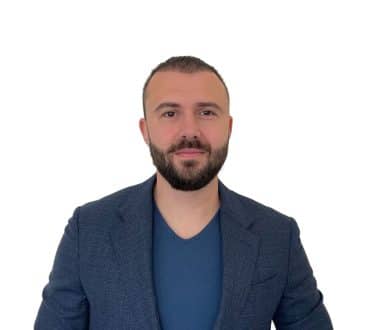Before Pointing Your Finger, Use Your Thumb

Most folks who read my books and articles know that I am a big believer in the importance of returning common decency back into our leadership approach. With the global pandemic continuing to wreak havoc on many people’s emotional states, decency is more important now than ever before. Indeed, working professionals should expect those that lead to operate decently. Being accountable for what you say and do is part of operating decently.
That said, leaders risk eroding trust within their companies and minimize their effectiveness is setting direction and managing change by shifting blame an evading accountability. After all, who wants to follow someone that they do not trust. To be sure, a low trust work environment puts the achievement of any game-changing goal at risk.
Therefore, it is essential that leaders own their actions. In fact, I have developed an easy to remember expression about accountability to help those whom I coach. Let me share it with you:
“Before pointing your finger, use your thumb.”
Leaders, who are inclined to shirk their accountabilities, are often the quickest to point fingers at others. I suppose shifting blame and making excuses for poor performance makes them feel better about themselves. However, such behavior is so shady that it’s transparent.
Clearly, I’m using the oxymoron as a deliberate rhetorical device in an attempt to add some drama to the point. However, sometimes the simplest things are the most difficult to see. Shifting blame is a weak attempt to take accountability for your own actions. If you do this too much, your team stops caring. When they stop caring, you are doomed.
Here are some ideas to keep accountability top-of-mind:
- Stop Making Empty Promises: Firstly, if you say that you’re going to do something, do it. Your word should be your bond. If you’re uncertain or, worse, have no intention of doing what you claim. Just save your breath and just don’t say anything.
- Don’t Look for the Easy Button: Accountability requires effort. Accordingly, you must stop looking for the easiest way to check the box. That’s just being lazy. Instead, roll up your sleeves and prepare yourself to do whatever it takes to get things done.
- Avoid Extremes: Everything in moderation, including risk-taking! Adding unnecessary risk to the work at hand increases the likelihood of failure. However, being smart in managing risk lessens the burden of accountability by improving the odds of success.
- Seek and Welcome Feedback: A foolish student laughs at knowledge. If you want to become better at what you do, which makes being accountable so much easier, then seek and welcome feedback. Of course, no all feedback will be helpful or constructive. However, you will always get a nugget, or two, that you can use to enhance performance.
- Find a Friend: It is often effective to have someone assist you in being accountable. Asking someone to be your “accountability buddy” can be a great way to help you to keep accountability top-of-mind. You can ask your buddy to send you a note, text or call you every week or two to inquire about how you’re doing in your effort to become more accountable at work. The act of having someone regularly check-up on your progress will make certain that you’re putting in the effort to improve.
- Work a Plan: For some, developing the capacity to be more accountable can be a journey. Like any journey, having a plan can provide guidance and structure for how to practice the behaviors that will make you more accountable. That said, develop an accountability improvement plan that outlines your goal (i.e., to behave more accountably) and defines the steps that you’re willing to take to achieve them (i.e., perhaps incorporating some of the of the ideas above) . Once the plan is set, “work” it and monitor your progress until you routinely operate with a high-level of accountability.
To close, leaders get paid to “keep it real.” We do this by starting with ourselves – that’s why I say: “Before pointing your finger, use your thumb.” We have to be honest with ourselves. We have to recognize when we are not operating at the highest level of decency, give that behavior a name and decide to do better. After all, accountability starts with each of us.
Add CEOWORLD magazine to your Google News feed.
Follow CEOWORLD magazine headlines on: Google News, LinkedIn, Twitter, and Facebook.
Copyright 2024 The CEOWORLD magazine. All rights reserved. This material (and any extract from it) must not be copied, redistributed or placed on any website, without CEOWORLD magazine' prior written consent. For media queries, please contact: info@ceoworld.biz








